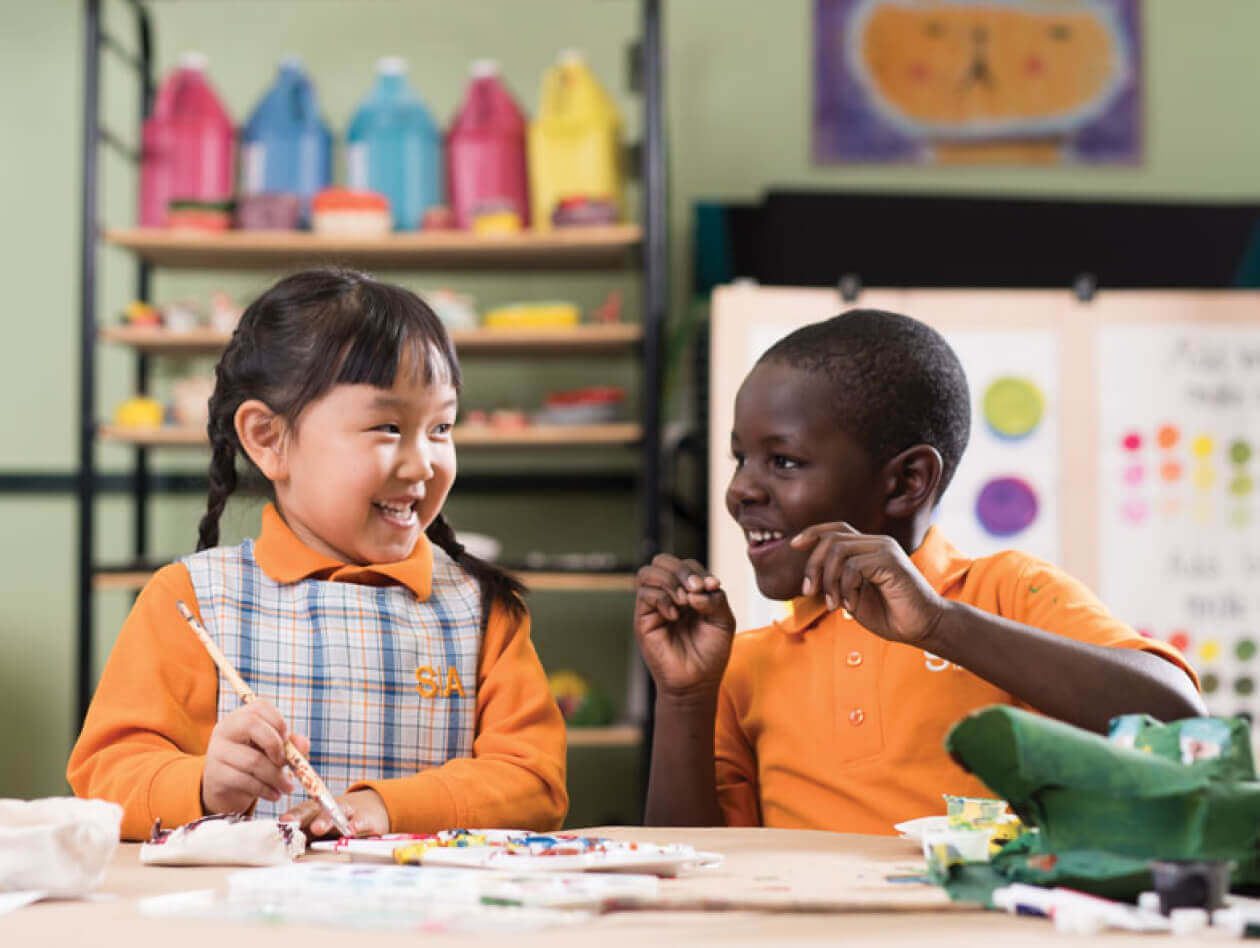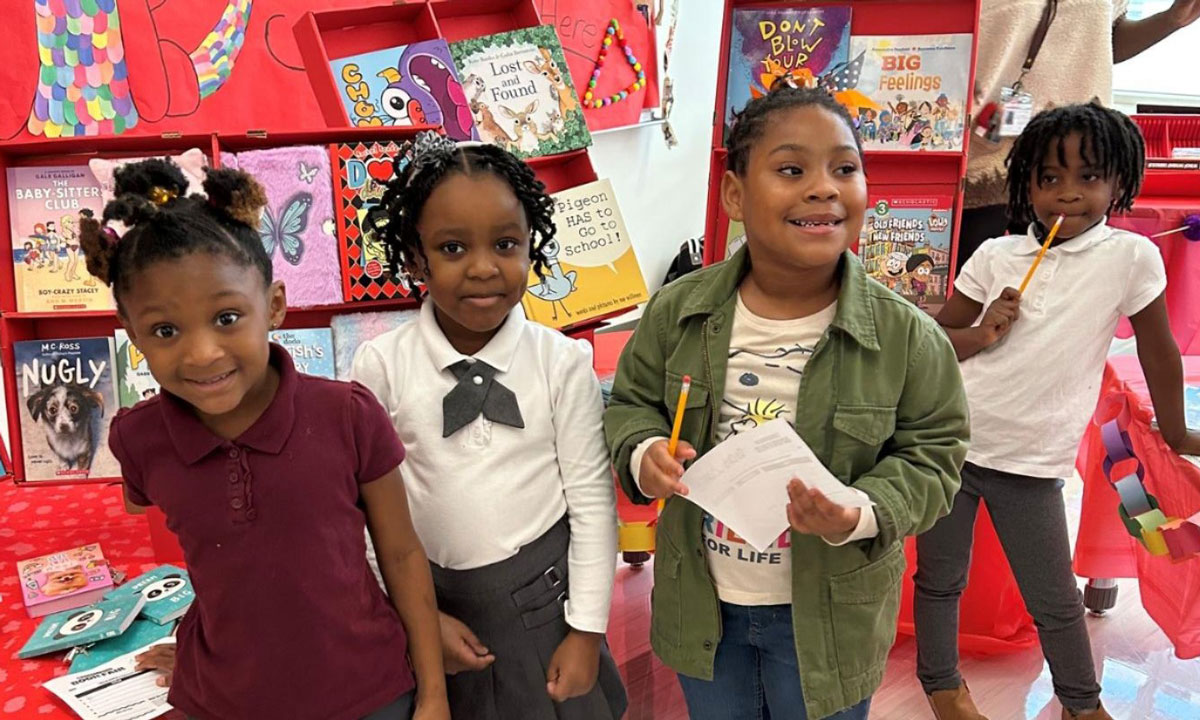How Kindergarten encourages creativity and curiosity in early learners
Wiki Article
Everything about Kindergarten: Understanding the Value of Early Childhood Years Education Programs
Preschool works as a crucial phase in a child's very early development. It introduces fundamental abilities essential for future discovering and social interactions. With numerous activities, youngsters participate in organized play that advertises cognitive growth. Comprehending the subtleties of different preschool programs can additionally brighten their relevance. What specific benefits do these very early education and learning experiences offer, and exactly how do they shape a child's trajectory? The responses might be more complicated than one could anticipate.
The Duty of Preschool in Youngster Development
Although some may see kindergarten simply as a transition phase before formal schooling, it plays a necessary function in kid growth. This fundamental phase promotes essential social, psychological, and cognitive abilities that are crucial for long-lasting discovering. In preschool, kids take part in organized play, which boosts their capacity to coordinate, share, and resolve conflicts with peers. These interactions lay the groundwork for healthy relationships and improved communication abilities.On top of that, kindergarten introduces youngsters to standard principles in literacy and numeracy, sparking inquisitiveness and a love for understanding. Teachers direct pupils via tasks that promote vital and analytical reasoning, crucial parts of intellectual growth. The atmosphere emphasizes regular and structure, assisting children create self-control and independence. By concentrating on holistic development, kindergarten warranties that youngsters are not only ready academically but likewise socially and psychologically for the challenges of future academic ventures.
Key Advantages of Very Early Childhood Education
Early childhood education offers numerous advantages that can considerably impact a child's growth and future success. Study suggests that youngsters that join quality very early education programs display boosted cognitive skills, much better language growth, and improved social abilities compared to their peers who do not participate in such programs. These fundamental abilities are important as they set the phase for scholastic achievement and long-lasting understanding.Very early education and learning cultivates psychological growth by offering children with chances for cooperative play and dispute resolution, assisting them establish durability and compassion. Furthermore, these programs usually help connect the space for kids from diverse backgrounds, guaranteeing equitable access to learning experiences and resources
Ultimately, investing in early childhood years education and learning not just advantages private kids however likewise contributes to stronger communities, as educated people are most likely to engage positively in culture and the labor force.
Different Sorts Of Preschool Programs
Numerous preschool programs accommodate various instructional viewpoints and requirements. Full-day options provide extensive discovering time, while the Montessori technique highlights independence and hands-on experiences. In addition, play-based discovering methods foster imagination and social abilities, highlighting the diversity in early childhood years education.Full-Day Kindergarten Options
Several parents and educators acknowledge the growing relevance of full-day preschool options in very early childhood education and learning. Full-day programs normally offer an even more comprehensive learning experience, allowing children to take part in a range of activities throughout the day. These choices commonly include a balanced educational program that integrates academic, social, and psychological advancement. Some districts supply standard full-day preschool, while others may give specialized programs, such as twin language or thematic knowing atmospheres. In addition, full-day kindergarten can suit working parents by straightening school hours with common job schedules. Study suggests that students in full-day programs usually demonstrate enhanced scholastic efficiency and social skills compared to their peers in half-day setups, making these alternatives increasingly prominent in several communities.Montessori Method Introduction
Although the Montessori approach is just among several educational approaches, it has actually obtained significant attention for its distinct focus on child-led understanding and expedition. Established by Dr. Maria Montessori, this technique concentrates on promoting self-reliance and self-directed task in youngsters. Class are commonly made to urge activity and hands-on involvement with products, enabling youngsters to find out at their very own speed. Montessori teachers act as guides, helping with learning with observation rather than direct guideline. This strategy focuses on mixed-age classrooms, promoting collaboration and peer learning. Additionally, the Montessori approach stresses functional life skills and sensory activities, aiding youngsters establish a strong foundation in both social and scholastic competencies. Parents usually value the alternative development that this approach supports in their youngsters.Play-Based Understanding Methods
Play-based learning approaches are indispensable to many kindergarten programs, stressing the value of play as a fundamental setting of discovering for young kids. These approaches urge you can find out more exploration, creativity, and social communication, allowing youngsters to participate in hands-on experiences that cultivate psychological and cognitive growth. Different kinds of play, such as imaginative, positive, and physical play, are utilized to sustain discovering objectives throughout subjects like literacy, science, and mathematics. Additionally, play-based programs typically incorporate joint activities, promoting synergy and interaction skills. Educators observe and lead kids during play, making sure that learning outcomes are achieved while maintaining a cheerful learning environment. This technique not just enhances scholastic readiness yet also cultivates a lifelong love for understanding, making it a vital part of very early childhood years education.The Value of Play in Understanding
A significant body of research highlights the important duty of play in very early youth education and learning, highlighting its extensive influence on knowing and look at these guys advancement. Play serves as a crucial device where young kids discover their environment, develop cognitive skills, and enhance their problem-solving abilities. Engaging in imaginative play enables kids to explore various functions and situations, promoting imagination and important reasoning.Moreover, play-based learning encourages youngsters to involve with products and ideas in a hands-on manner, making abstract ideas more understandable and tangible. This experiential knowing method not just captures children's passion however also advertises innate motivation, basic for lifelong learning.
Through play, youngsters likewise refine their electric motor skills and spatial recognition, laying the foundation for much more intricate scholastic tasks. Basically, prioritizing play in early youth education programs is crucial for nurturing all natural development, furnishing children with the foundational abilities needed for their future educational trips.
Social Abilities Advancement in Kindergarten
Structure on the foundation developed through play, preschool serves as a crucial environment for social abilities growth. Throughout this formative stage, youngsters take part in organized tasks that motivate communication with peers. Through group tasks, cooperative games, and shared jobs, they learn necessary abilities such as dispute, compassion, and communication resolution.Educators facilitate these interactions, leading kids in comprehending social cues and promoting favorable partnerships. As youngsters navigate various social circumstances, they establish a feeling of belonging and find out to value diverse perspectives.
Additionally, preschool gives opportunities for children to practice turn-taking, sharing, and settlement, which are essential for building friendships. These experiences not just boost social capability yet additionally add to psychological knowledge. Therefore, the social abilities gotten in preschool lay the foundation for effective communications in later academic settings and throughout life. The importance of social skills growth in preschool can not be overstated.
Adult Involvement in Very Early Education And Learning

When moms and dads show a passion in their youngster's education and learning, it home grows a positive attitude towards learning. When they really feel sustained, youngsters are a lot more most likely to establish a sense of belonging and motivation to succeed. Additionally, adult participation can improve a child's emotional well-being, bring about better durability in dealing with school obstacles. Subsequently, promoting a collective environment in between home and college is crucial for maximizing early educational experiences and end results.
Preparing for the Change to Elementary Institution
As children come close to the end of their preschool journey, preparing for the adjustment to primary school ends up being increasingly crucial. This shift calls for careful preparation and support from both instructors and parents. Acquainting children with the new atmosphere, routines, and expectations of primary school can ease their stress and anxiety and advertise confidence.
Colleges frequently give orientation sessions that present children to their future classrooms and instructors, cultivating a sense of belonging. Furthermore, moms and dads can engage in conversations concerning the changes ahead, emphasizing the amazing possibilities for finding out and social interaction.
Urging self-reliance in daily tasks, such as dressing and adhering to a timetable, can also be beneficial. Practicing necessary skills, such as letter recognition and fundamental mathematics, prepares youngsters academically for first grade.
Eventually, a collective initiative amongst parents, teachers, and the neighborhood assures a smoother change, laying a strong structure for an effective instructional trip.
Regularly Asked Questions
What Qualifications Should Kindergarten Teachers Have?
Kindergarten instructors must possess a bachelor's degree in early youth education or an associated field, along with state certification. Additional qualifications may include specialized training in youngster growth, class monitoring, and reliable mentor methodologies.How Do I Pick the Right Preschool Program?
To pick the ideal preschool program, one ought to think about elements like curriculum, training methods, class dimension, educator certifications, and parent reviews. Visiting centers and observing communications can likewise provide valuable insights right into the program's atmosphere.What Should My Kid Learn in Kindergarten?
In preschool, a kid should find out fundamental skills such as standard reading and writing, counting, social interactions, analytic, and motor skills. These expertises foster cognitive growth and prepare them for future academic obstacles.Exist Age Demands for Kindergarten Enrollment?
Most states need children to be 5 years of ages by a specific day, typically September 1st, for preschool registration. Nonetheless, particular age needs can vary, so examining regional college district regulations is crucial.
How Can I Support My Kid's Understanding at Home?
To support a kid's discovering in the house, parents can develop a routine, offer appealing academic products, urge analysis, join hands-on activities, and foster open communication to nurture inquisitiveness and crucial thinking skills.Kindergarten serves as an important phase in a youngster's very early growth. Some might view kindergarten simply as a changeover phase before formal schooling, it plays a vital function in kid advancement. In addition, kindergarten presents youngsters to standard principles in proficiency and numeracy, triggering inquisitiveness and a love for discovering. Play-based understanding approaches are indispensable to countless preschool programs, emphasizing the importance of play as a fundamental setting of finding out for young kids. In kindergarten, a child should discover fundamental skills such as basic analysis and writing, counting, social communications, analytic, and electric motor skills.
Report this wiki page